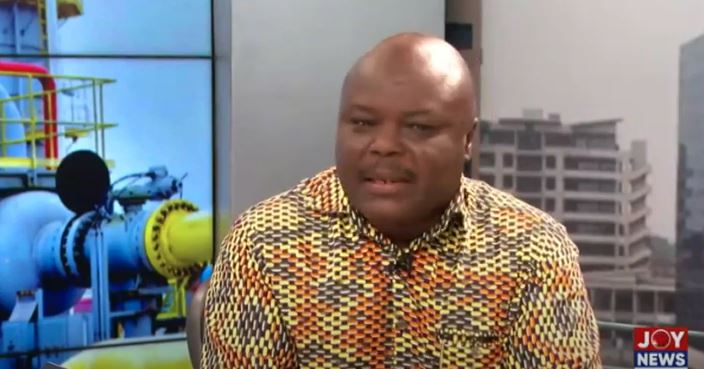Minister for Public Enterprises, Joseph Cudjoe, has said that he is an advocate of fat salaries for public sector workers who perform.
At a press briefing in Accra on Wednesday, Joseph Cudjoe explained, however, that payment of fat salaries becomes an issue when the worker fails to perform his or her duties.
“Maybe you are talking to the wrong person on salaries when it is fat. I openly declare anywhere that I am an advocate for a good salary and if this is bad tell me this is bad…If the person is performing and being paid a good salary, I would clap for the person.
"If the person is not performing and taking that good salary, you exact performance from the person because you are paying the person. So I am a lover of fat salary. You can’t use me to pay people badly, I always speak for people who are not paid well,” he said.
The minister justified his position by indicating that what makes a country wealthy, "is for people to be paid good salaries”.
He added, “when people get good salaries, it is when they can cater for their needs and also save in the financial system then deposits build up in the financial system. [You] give loans to businesses and individuals who need them. So if someone is taking a good salary, the issue is always whether the person is giving an output that reflects the salary, that is all.”

The minister also dispelled suggestions for the sacking of non-performing CEOs of state-owned enterprises stressing the fault may not be entirely theirs.
“They are reporting losses because we are not willing to pay the right prices. Because to report profit means that revenue must be generated, cost should be paid, interests should be generated, taxes, utilities, tariffs, every cost should be paid for and you record profits.
“Their reporting of profits depends on us, not the managers because the manager might be technically competent, professionally savvy and everything, but right pricing or wrong pricing is what would determine their profitability,” he stated.
Meanwhile, the Finance Ministry has revealed that state-owned enterprises reported a GH¢5.3 billion loss in their operations in the 2020 fiscal year.
It added that some SOEs have been reluctant to submit annual accounts since 2017.
To fix the poor state of some of the entities, the Finance Ministry is warning it will no longer support requests for assistance by SOEs that fail to meet the reporting requirements specified in the Public Financial Act.
Deputy Finance Minister, Dr John Kumah, announced this at a forum held by the State Interest and Governance Authority (SIGA) in Accra on Friday, January 28, 2022.
Latest Stories
-
Let’s prioritize research quality in higher education institutions for industrial growth-Prof. Nathaniel Boso
6 hours -
Herman Suede is set to release ‘How Dare You’ on April 24
10 hours -
Heal KATH: Kuapa Kokoo, Association of Garages donate 120k to support project
10 hours -
KNUST signs MOU with Valco Trust Fund, Bekwai Municipal Hospital to build student hostel
11 hours -
The influence Ronaldo has on people, Cadman Yamoah will have same on the next generation – Coach Goodwin
11 hours -
Gender Advocate Emelia Naa Ayeley Aryee Wins prestigious Merck Foundation Awards
12 hours -
South Africa bursary scandal suspects granted bail
13 hours -
Ecobank successfully repays $500m Eurobond due April 18
13 hours -
Re: Doe Adjaho, Torgbui Samlafo IV, call for Unity among Paramountcies in Anlo
13 hours -
Extortion and kidnap – a deadly journey across Mexico into the US
13 hours -
Rihanna says fashion has helped her personal ‘rediscovery’ after having children
13 hours -
Development Bank Ghana targets GH¢1bn funding for commercial banks in 2024
13 hours -
Shatta Movement apologises to Ghana Society of the Physically Disabled after backlash
14 hours -
Sammy Gyamfi writes: Tema-Mpakadan Railway Project; A railway line to nowhere
15 hours -
Bright Simons: Is the World Bank saving or harming Ghana?
15 hours

